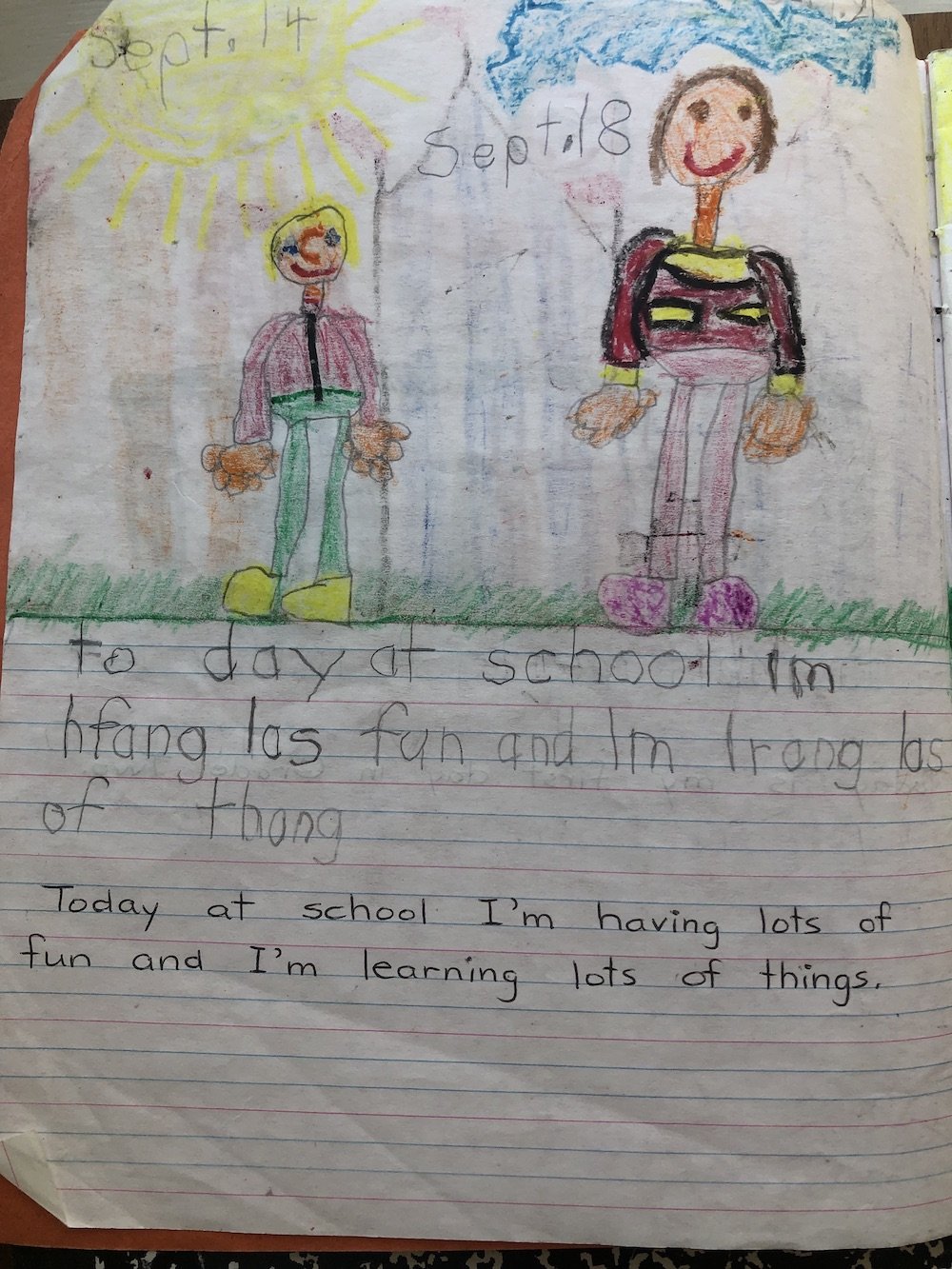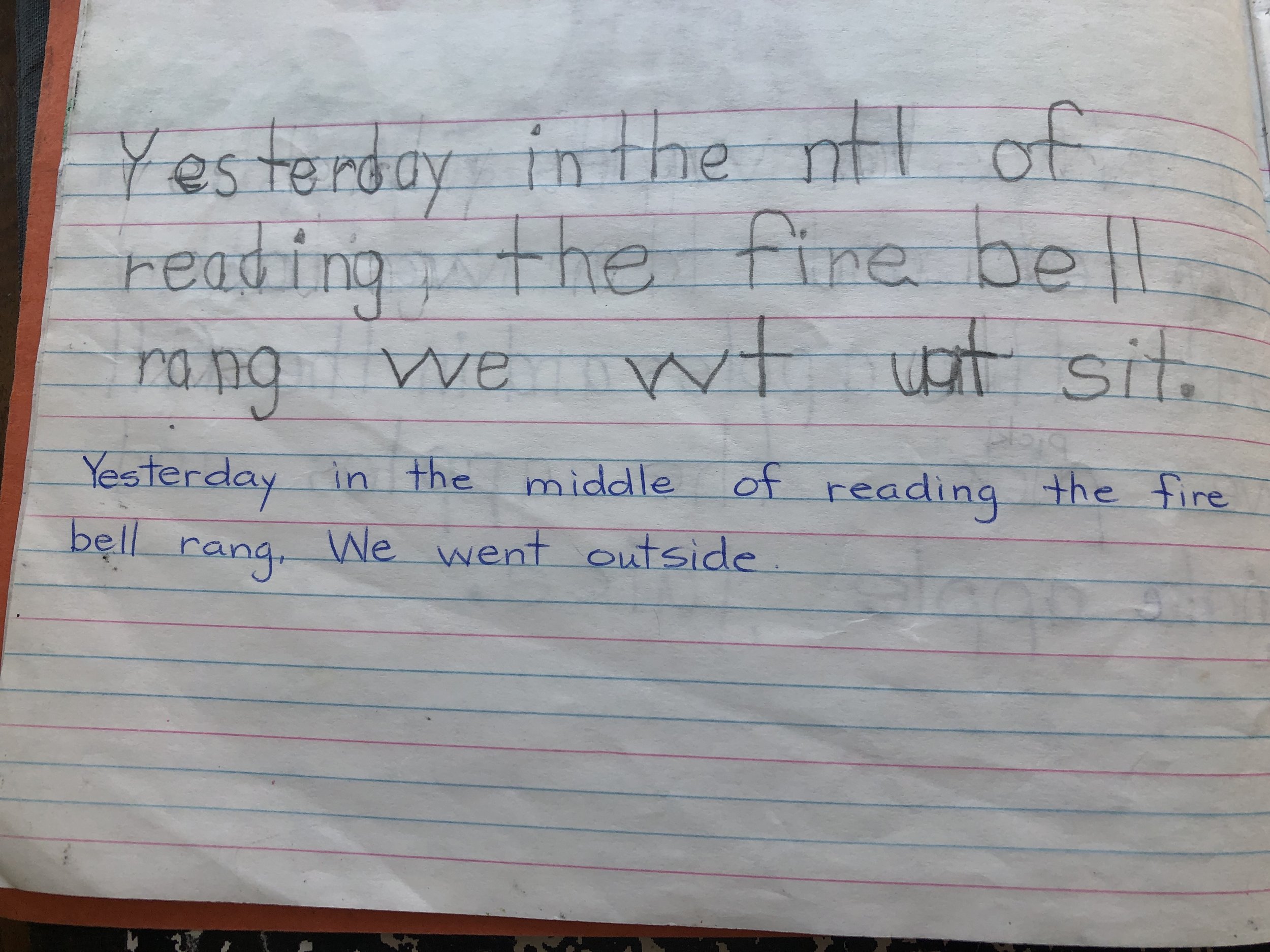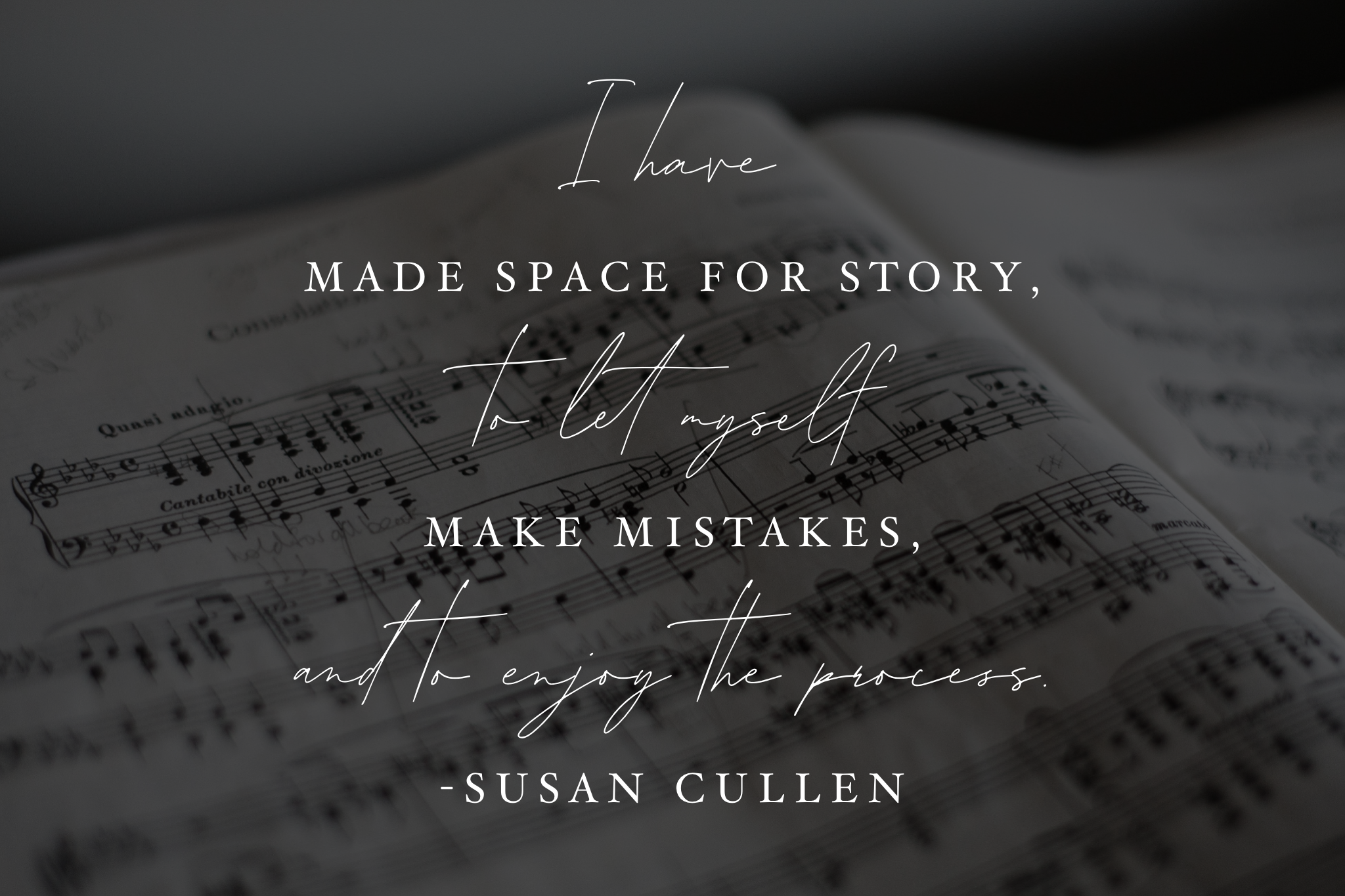Making Music with Words: Missed Notes Do Not Mean Failure
Written by Susan Cullen
Editor’s Note: Susan Cullen is the author of The World Collective, a sweeping dystopian adventure unlike anything you’ve read before. Book one is set for release later in 2022. Please give her a follow on Twitter @sunnynasus and on Instagram @susancullen_author
Imposter Syndrome. A crippling self-doubt in one’s abilities and accomplishments that leaves the sufferer feeling like a fraud. No one is safe from imposter syndrome but for creatives (and writers in particular) it is an all too familiar experience. Trust me, I know. I am VERY well acquainted.
I grew up loving stories. With parents and grandparents who valued reading, my childhood was full of favourite books and animated bedtime stories. I was either reading, dreaming up new stories, or roaming over the farm with my siblings absorbed in elaborate imaginative play that was essentially living storytelling. Stories became the way I made sense of the world. They have always been my escape and compass.
But never did I think I could be an author. No matter how much I loved creating my own stories I believed writing could never be for me.
You see, child me had ZERO language skills. No matter how much I read it just did not translate into useful word knowledge I could use in my own writing. Spelling, grammar, all the foundations for using written language were a mystery to me.
And so, I ended up with Grade Two journal entries like the ones posted below. On a different page I manage to spell ‘it’ wrong. ‘It’ in Grade Two.
So, could child me imagine adult me becoming a writer? Not a chance. How could I become a writer when every sentence would be riddled with errors? How could I ever put my stories in the world when that would open me up to ridicule? So, even though Grade 4 me spent weeks typing out a Goldilocks retelling on the school computers, and Grade 5 me would beg the teacher to stay in at recess so I could keep working on an elaborate story about a field trip to outer space, and Grade 8 me spent hours writing out a story in cursive in a homemade bound book so it would fit the narrative of a slave girl trying to stop an innocent man being put to death, I never even considered the possibility of becoming an author. Writing was for other people not me.
Fast forward to 2009. I’d been teaching for four years and was now home with a new baby. A childhood friend kept posting on Facebook their daily word count for this thing called NaNoWriMo. My curiosity sent me looking and I learned this strange letter combination stood for National Novel Writing Month. All over the globe people were challenging themselves to write 50 000 words in the month of November. My firstborn was at that lovely stage where they nursed and slept. I was home and I had time. And I had an idea. I remembering thinking, why not? I doubt I can write that many words but I have nothing to lose by trying.
What started as a distraction from the tedium of new parenting quickly turned into an all-consuming passion. Mid-month I had a moment where I knew I HAD to finish this story. Not because the story was amazing but because I needed to prove to myself that I could do it. I could write a novel.
And I did. 50 000 words in less than a month. A story that I wasn’t embarrassed about. Not perfect but not terrible either. It was a turning point. A reminder that writing didn’t have to be for the world. It can be for yourself. An outlet. An escape. An exercise in self-discipline and a challenge to grow into something new.
I once heard someone compare being a writer to a being musician. I wish I could remember who and where I heard this but it has stuck with me and changed the way I look at writing. They pointed out we understand a musician’s need to practice scales and make a racket in their parent’s garage. We don’t consider it wasted time or a sign of their ability but know it is a necessary step in their journey to improve their craft. Why don’t we give ourselves the same grace as a writer?
After that first NaNoWriMo experience I began to take writing seriously. Not because I thought I could be famous one day (lovely imposter syndrome would never let me think so grandly) but because I enjoy it. Diving into a story gives me joy. Yes, spelling and grammar will always be a challenge for me but now I also acknowledge there are elements I do well. My struggle with words is because I stop seeing them, instead seeing the story played out in my mind and I can use that to enrich my writing. I’m also great at recognizing a good story when I come across it. Pacing, characters, meaningful plot progression. I know when it is working and when it's not. Knowing how to fix it when it isn’t working is another matter but I will keep practising, keep honing my craft. If I return day after day, practising at this art that makes me happy, I can improve.
Today when I look at my Grade 2 journal I see perseverance. There is growth between the first entry and the last where I wrote three-pages on one day. Yes, it still has errors but they are fewer. I was honing my skills however slowly. Terrible writing is not wasted writing. For, as Richard Bach is quoted, “A professional writer is an amateur who didn’t quit.”
My writing journey from 2009 to today has been full of bumps and turns but what has been consistent is that I have made writing a priority. I have made space for story, to let myself make mistakes, and to enjoy the process. This has allowed growth, in my writing skills and my self-confidence. I have grown from the writer who wrote journals where every word was incorrect to one who polished and revised and asked for help until one day, her manuscript becomes a book that a reader can pick up and escape into.
Imposter syndrome? It’s still there, lurking whenever I post a tweet with a typo, when my 13-year-old does a better job of proofreading than I do, or in the fear that people will read my book and find fault with it. That’s the thing with imposter syndrome, it blinds you to your accomplishments. It encourages you to downplay and belittle the things you do well because it will always find someone who does it better. But since deciding writing is a priority in my life, I don’t let imposter syndrome cripple me the way it used to.
Writing is for me. I am making music with words and a few missed notes do not destroy the song, especially if I don’t let them stop me.
If you have a story in your heart stop letting imposter syndrome win. If I can do it, you can too. Get out those notebooks and practice your scales. Go, make music with your lovely words.
Stories are how Susan Cullen makes sense of the world so it was only natural that she would turn to writing. After going off to university she spent a decade supply teaching, got married, and started a family of fellow book-lovers, fighting that crippling beast called self-doubt along the way. A lover of all four of Canada’s seasons, Susan lives in Chatham-Kent, cheering on her fellow NaNoWriMo writers, walking her pup, and collecting books. The World Collective is her debut YA novel - coming later in 2022.





